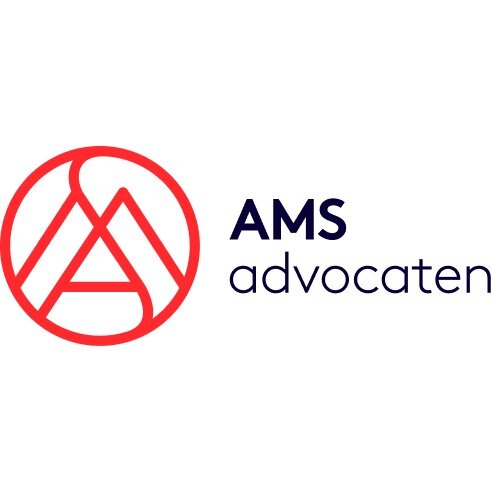Best Tax Lawyers in Amsterdam
Share your needs with us, get contacted by law firms.
Free. Takes 2 min.
List of the best lawyers in Amsterdam, Netherlands
About Tax Law in Amsterdam, Netherlands
Tax law in Amsterdam, and the Netherlands more broadly, is based on a comprehensive system governed by both national and EU regulations. Amsterdam, being a part of the Netherlands, adheres to the national tax regulations administered by the Belastingdienst (Dutch Tax and Customs Administration). The taxation system includes income tax, corporate tax, value-added tax (VAT), gift and inheritance tax, and other local taxes. The country's tax law is known for its complex, yet structured policies designed to maintain economic stability and encourage foreign investment.
Why You May Need a Lawyer
There are several scenarios in which you might need legal assistance regarding taxes in Amsterdam:
- Complex Tax Returns: Individuals or businesses with complex financial situations may struggle to accurately file tax returns and ensure compliance with tax regulations.
- Tax Disputes: Disagreements with the tax authorities over tax assessments or audits can require expert legal advice to resolve.
- International Taxation: Expats or entities dealing with cross-border tax issues might need specialized knowledge to navigate international tax obligations.
- Corporate Tax Planning: Businesses looking to optimize their tax strategy to reduce liabilities legally may benefit from the insights of a tax lawyer.
- Inheritances and Gifts: Proper legal guidance is crucial to navigate the implications of inheritance and gift taxes.
Local Laws Overview
The tax framework in Amsterdam is primarily defined by national Dutch tax laws, which include:
- Income Tax: Individuals are taxed based on a progressive rate structure, with taxes levied on wages, savings, assets, and business income.
- Corporate Tax: Businesses operating in the Netherlands are subject to corporate tax on their worldwide income, with a notable rate system for small and medium enterprises.
- Value-Added Tax (VAT): The standard VAT rate in the Netherlands is 21%, with reduced rates applicable to essential goods and services.
- Withholding Tax: The Netherlands has treaties with many countries to prevent double taxation, affecting the withholding tax on dividends, interests, and royalties.
- Inheritance and Gift Tax: Tax is levied on gifts and inheritances above a certain threshold, with the rates varying depending on the relationship between the donor and recipient.
Frequently Asked Questions
What is the deadline for filing tax returns in the Netherlands?
The annual income tax return deadline for individuals is May 1st for the previous year, but extensions can be requested.
Can expats benefit from special tax regimes in the Netherlands?
Yes, expats may benefit from the 30% ruling, allowing certain employees to receive 30% of their salary tax-free for up to five years under specific conditions.
How are freelance and self-employed income taxed?
Freelancers and self-employed individuals must register with the Chamber of Commerce and are subject to income tax. They may also have to deal with VAT.
What are the steps to resolve a dispute with the Dutch Tax Authorities?
Initially, file a formal objection with the tax authorities. If unresolved, it can progress to a court or tax tribunal.
What tax obligations apply to real estate transactions?
Property transfers are subject to a 2% or 8% transfer tax, applicable when purchasing residential or commercial property, respectively.
Are international pensions taxed in the Netherlands?
Yes, both domestic and international pensions are generally considered taxable income in the Netherlands.
Is there a capital gains tax in Amsterdam?
No, the Netherlands does not impose a separate capital gains tax, but gains can be subject to income tax depending on the source.
How are foreign dividends and interest taxed?
While resident taxpayers are subject to income tax on global income, double tax relief may apply under treaties.
What tax incentives are available for startups?
The Dutch government provides various incentives for startups, including tax exemptions and reduced rates to encourage innovation and entrepreneurship.
What is the impact of EU tax regulations on Dutch tax law?
EU tax regulations influence Dutch policies, especially regarding VAT and anti-tax avoidance measures, ensuring compliance with broader EU standards.
Additional Resources
Consider consulting the following resources for more information on tax in Amsterdam:
- Belastingdienst (Dutch Tax and Customs Administration): The official body for tax-related queries and regulations.
- Chamber of Commerce (KvK): Provides guidance for businesses, including tax obligations.
- International Tax Expert Centers: Specialized resources to assist with cross-border taxation issues.
- Amsterdam Expat Center: Offers resources and support for expatriates dealing with tax concerns.
Next Steps
If you need legal advice on tax issues in Amsterdam, consider the following steps:
- Identify Your Needs: Clarify whether you need help with personal taxation, corporate tax planning, dispute resolution, or international tax issues.
- Research Legal Professionals: Look for lawyers or firms specializing in tax law with experience in dealing with the Dutch system.
- Schedule a Consultation: Meet with potential legal advisors to discuss your situation and assess their expertise and approach.
- Prepare Relevant Documentation: Gather all necessary documents, including past tax returns, financial statements, and correspondence with tax authorities.
- Understand Legal Costs: Be clear on the fee structure before proceeding with any legal services.
Following these steps can help ensure you receive the necessary legal assistance to effectively manage and resolve tax issues in Amsterdam.
Lawzana helps you find the best lawyers and law firms in Amsterdam through a curated and pre-screened list of qualified legal professionals. Our platform offers rankings and detailed profiles of attorneys and law firms, allowing you to compare based on practice areas, including Tax, experience, and client feedback.
Each profile includes a description of the firm's areas of practice, client reviews, team members and partners, year of establishment, spoken languages, office locations, contact information, social media presence, and any published articles or resources. Most firms on our platform speak English and are experienced in both local and international legal matters.
Get a quote from top-rated law firms in Amsterdam, Netherlands — quickly, securely, and without unnecessary hassle.
Disclaimer:
The information provided on this page is for general informational purposes only and does not constitute legal advice. While we strive to ensure the accuracy and relevance of the content, legal information may change over time, and interpretations of the law can vary. You should always consult with a qualified legal professional for advice specific to your situation.
We disclaim all liability for actions taken or not taken based on the content of this page. If you believe any information is incorrect or outdated, please contact us, and we will review and update it where appropriate.













